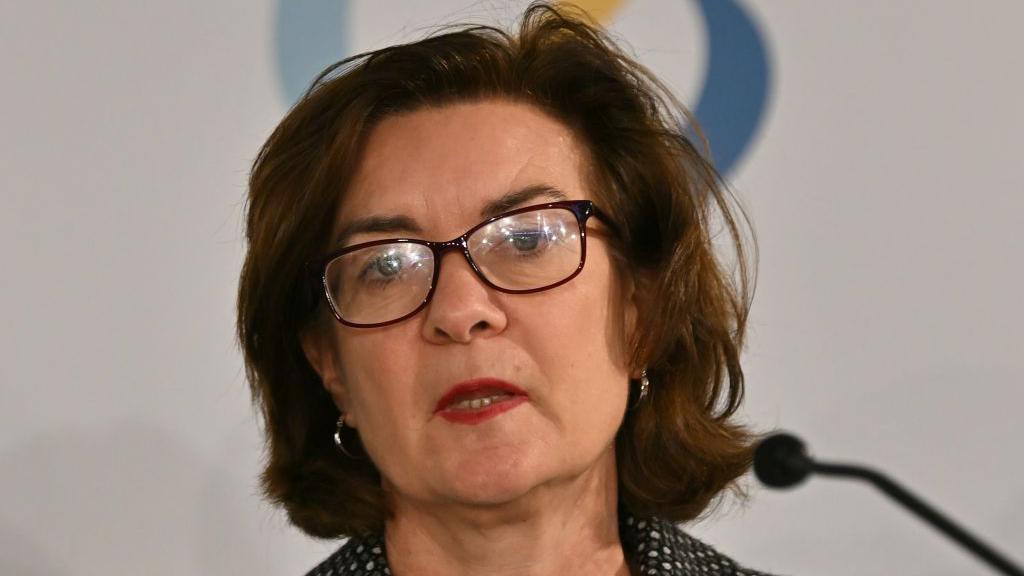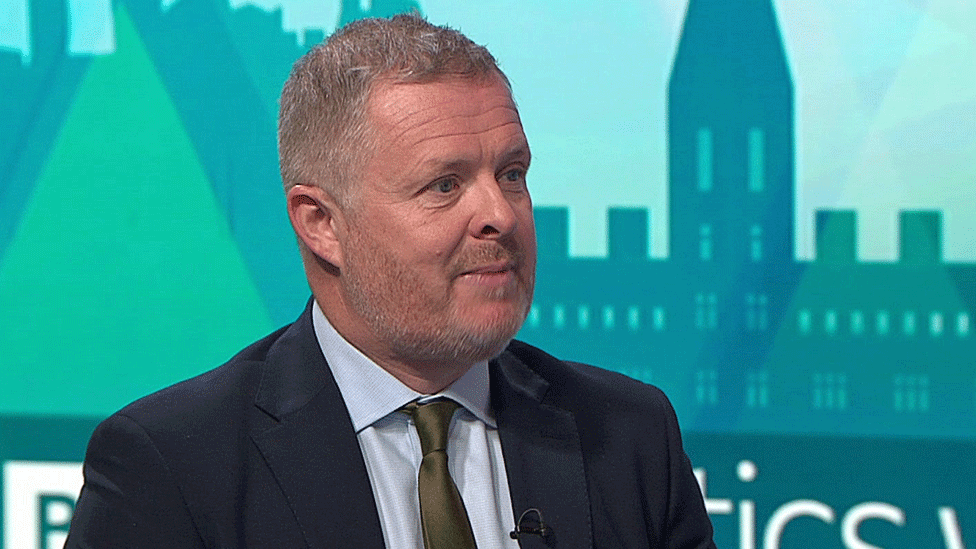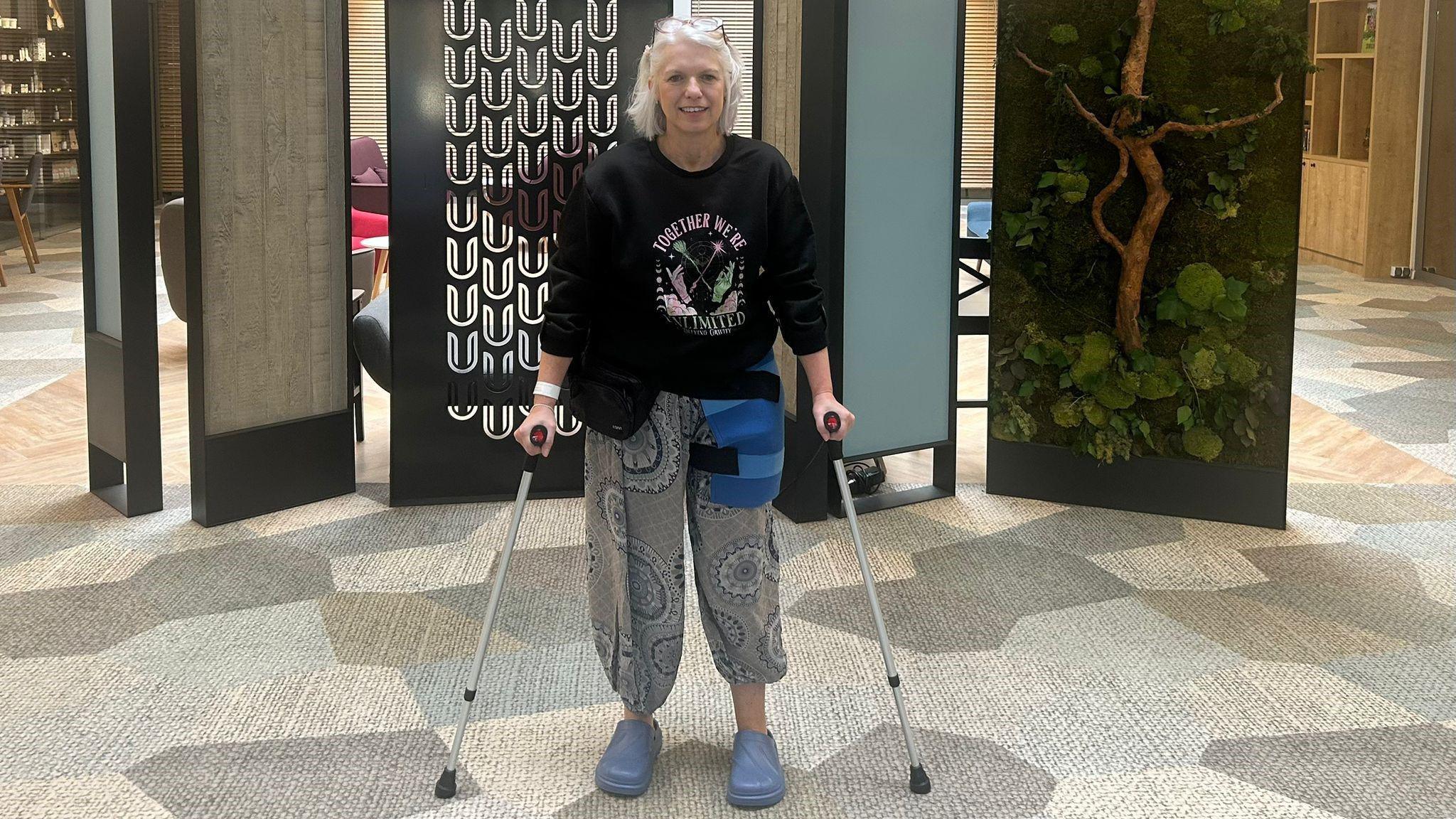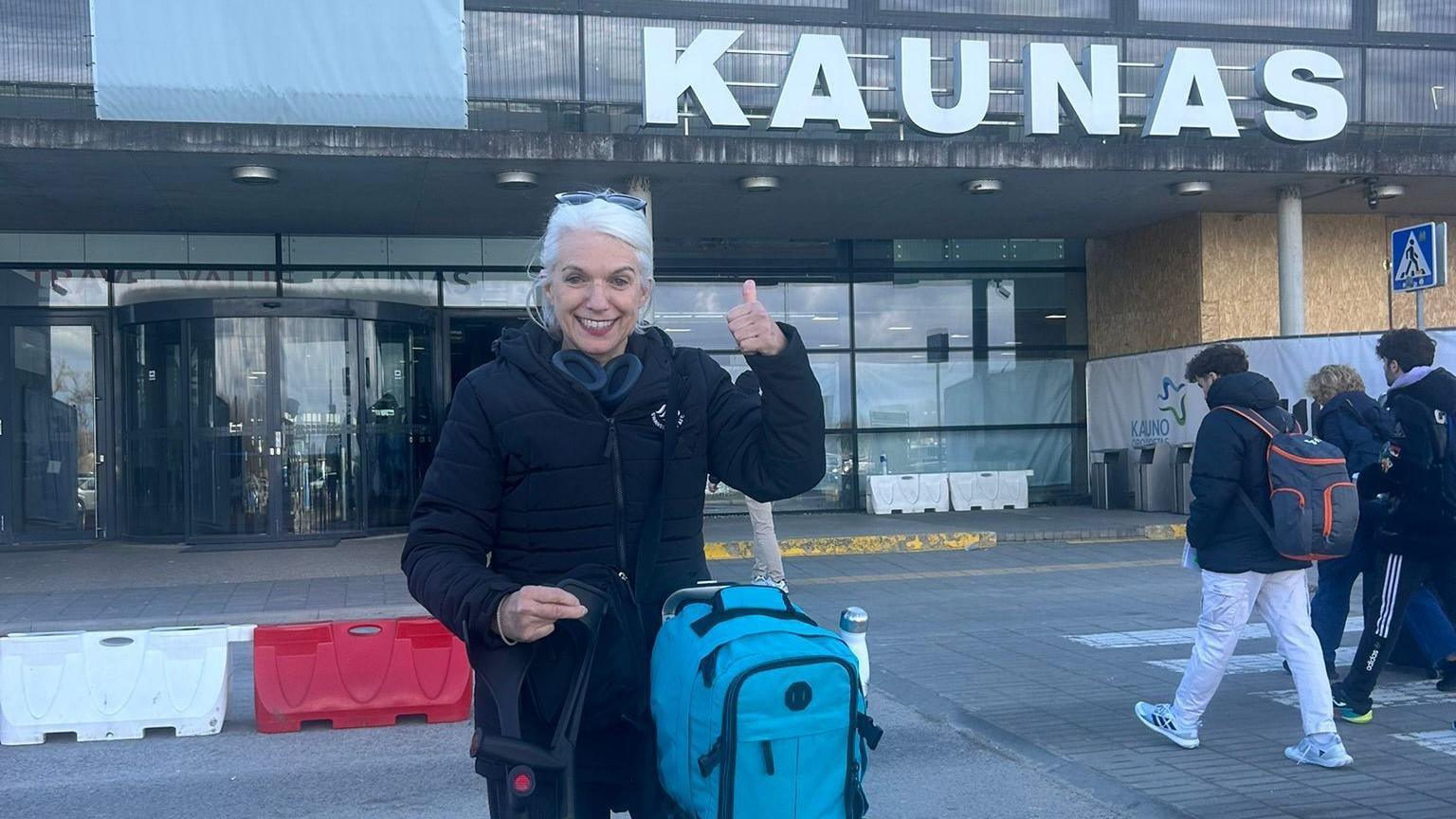First minister 'misses NHS waiting times promise'

- Published
Wales' first minister has been accused of missing a key promise on NHS waiting times.
In December, Eluned Morgan pledged to cut the numbers waiting two years or more for planned treatments, external from 24,000 to "about 8,000" by spring.
Despite falling to the lowest point since April 2021, March's figure stood at 8,389 with the majority - 5,747 - in the health board for north Wales, Betsi Cadwaladr.
Opposition parties said this meant the target had been missed.
There was a drop from February's figure of 15,500 amid a £50m investment but the figure is still well above NHS England which had just 147 people waiting two years or more.

Health Secretary Jeremy Miles praised Swansea Bay, Hywel Dda, and Powys health boards for not having any patients waiting more than two years for treatment
The Welsh government said its £50m investment led to more than 5,000 treatments, 2,000 diagnostic tests, 6,000 outpatient appointments and 2,100 neurodevelopmental assessments, eliminating three-year waiting lists.
Last month, Health Secretary Jeremy Miles said he was sure the NHS would come close to the 8,000 figure.
On Thursday, he praised Swansea Bay, Hywel Dda, and Powys health boards for having no patients waiting more than two years for treatment.
Miles said the focus was now cutting the waiting list by 200,000 this year and restoring an eight-week maximum wait for diagnostic tests by March 2026.
While calling the goal "ambitious", he thanked "NHS staff for their hard work getting us to this point".
With just under a year until the next Senedd election and with the NHS likely to be a key issue, the stakes were high.
However, Plaid Cymru's health spokesman Mabon ap Gwynfor accused the Welsh government of already missing a series of targets and then "moving the goalposts and still missing".
The Conservatives said: "The Welsh Labour government is still missing its cancer targets and no-one at all should be waiting two years for treatment or over 12 hours in A&E, let alone over 10,000 patients."
The Welsh Liberal Democrats said: "Two-year-long waiting lists for NHS treatment are unacceptable, given England virtually wiped out waits of this length several years ago, serious questions remain about how Labour have managed the NHS in Wales."
When asked if the target had been met, Miles said: "When we spoke a month ago I said I was pretty sure that we'd get pretty close to it and I think that's where we are."
He said by the end of the Senedd term, the Welsh government wants to make sure no-one is waiting two years.
Although numbers dropped from 24,000 to 8,400, new patients have continued joining the list, Miles said.
He added that around 65,000 people have received extra treatments, and if targets aren't met, funds can be reallocated within the NHS.

Sarah Thyer paid for her own operation abroad when she was told she would be waiting more than two years to have it done in Wales
The extra funding came too late for some, such as Sarah Thyer, who paid £8,000 for hip surgery in Lithuania after facing a two-year wait.
Ms Thyer, 60, from Sketty, Swansea, enjoyed an active life as a charity fundraiser until her left hip deteriorated quickly at the start of 2024.
"It was agony, so much so I had to use a stick. I couldn't do the activities I usually did like sea swimming and cycling," she said.
"I had to give up my job because I couldn't physically do what I needed to do."
Having osteoarthritis, Ms Thyer knew she would need to a hip replacement, having undergone surgery on her right hip in 2017.
Back then she had waited about eight months for the operation, but was told this time it would be at least triple that.
"You feel completely frustrated... because every day you're struggling," she said.
"To be told you've got another two years after already being on [the list] for about 40 weeks is just depressing because it's not just the pain, it affects your whole life - it was heart-breaking."
Woman, 90, had three-day wait in A&E chair
- Published9 January 2023
Crime by staff tolerated at hospital, report says
- Published7 May
My eye-opening day at overrun A&E department
- Published23 January
Following her father's death earlier this year, Ms Thyer took matters into her own hands and paid to have her hip replaced at a clinic in Lithuania.
She flew out on 2 March, had the operation two days later and "within eight hours" of surgery, was "walking up and down the corridor".
She can now ride her bike again and walk up stairs "without hanging on to the banister".
Despite occasionally feeling "angry" about paying for her own treatment, she does not blame NHS staff, but said there was "something wrong in the system".
Ms Thyer said she realises the progress has come too late for her and does not regret her decision, but recognised others could not afford to do the same.
She added: "I was lucky to be in that position. Obviously I would prefer to be paying £8,000 on a few holidays, a new bathroom, kitchen or car, but nothing is better than waking up in the morning and not having that excruciating pain.
"So I would pay it again tomorrow."
Analysis by Daniel Davies, BBC Wales political correspondent
Wales is gearing up for a Senedd election in 2026 with more than 600,000 patients on a waiting list.
Within those figures, two-year waits have become a key test of whether the Welsh government is overcoming the shock of Covid.
Opponents and journalists have not allowed ministers to forget that performance in Wales has been worse than in England.
Other targets were missed while Eluned Morgan was health minister, so as first minister she set this latest goal.
Coming close to hitting this target allows Labour to argue waiting times are at least moving in the right direction.
Narrowly missing it will prolong the debate about whether she is fulfilling her promise to lead a government that delivers for people.
Who knows whether that will shift opinion polls that show other parties prospering at Labour's expense.
To quote Eluned Morgan - the "gargantuan task" of turning round the NHS continues.

Sarah Thyer opted to foot the bill of her own operation in Lithuania when faced with the prospect of a two-year wait back home
While welcoming the Welsh government's commitment to bring down waiting lists, the Royal College of Surgeons (RCS) argued progress was "too slow".
Director in Wales Jon Barry said: "I feel very sorry for those patients who are sitting at home in pain, not being able to get around."
The RCS wants more surgical hubs in Wales - standalone units that focus on these treatments and can be protected from pressures on A&E.
Prof Barry, also a consultant surgeon in Swansea Bay health board, the area where Ms Thyer lives, said the Welsh government needed to invest in long-term solutions.
He said health boards were able to make inroads, in part, by paying for more evening and weekend working, using the private sector and pooling facilities, staff and resources.
He added: "Instead of spending money at the end of the financial year to get on top of these two-year waits it would be far more beneficial to use that funding 365 days a year to build durable capacity without turning to the private sector."